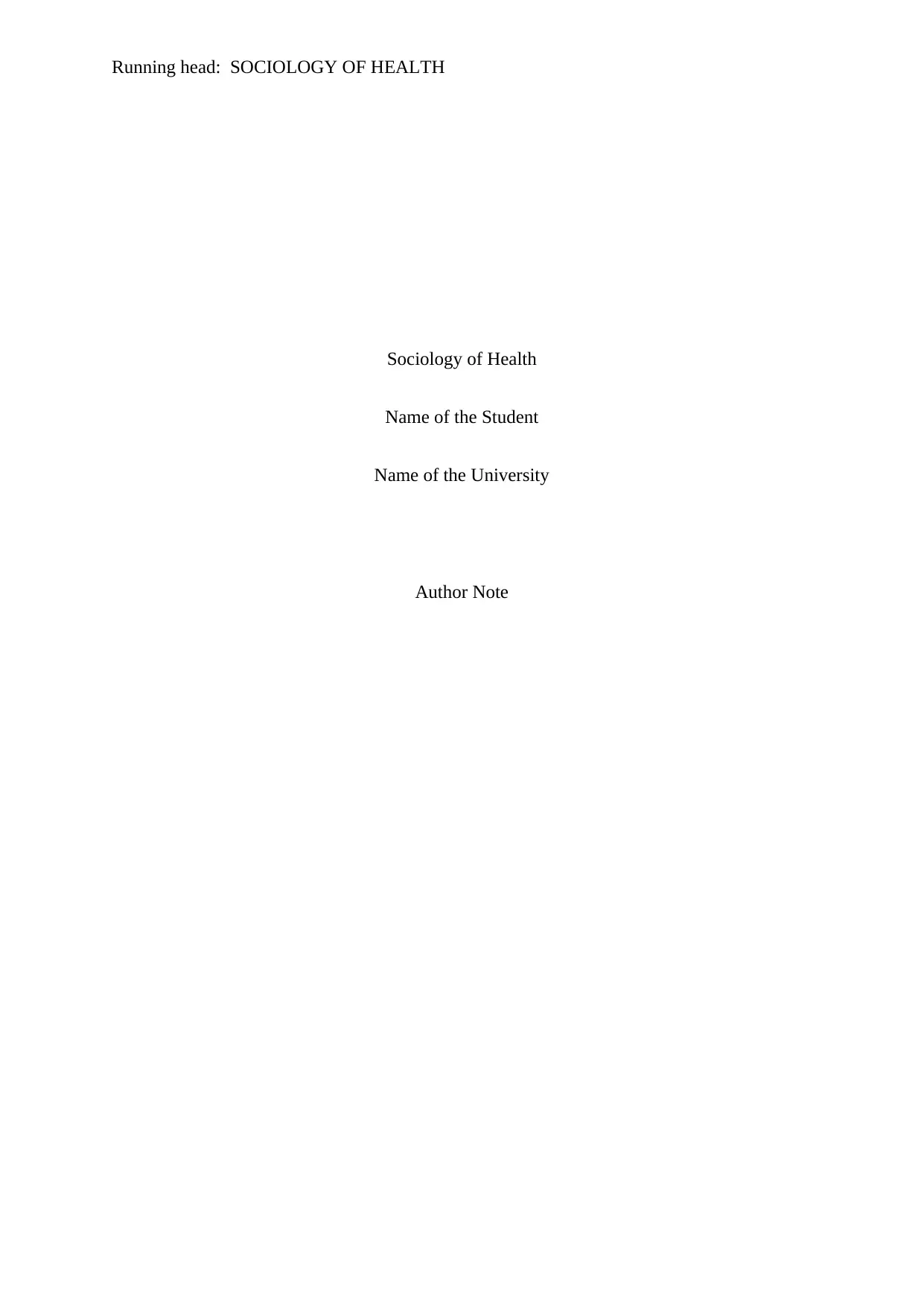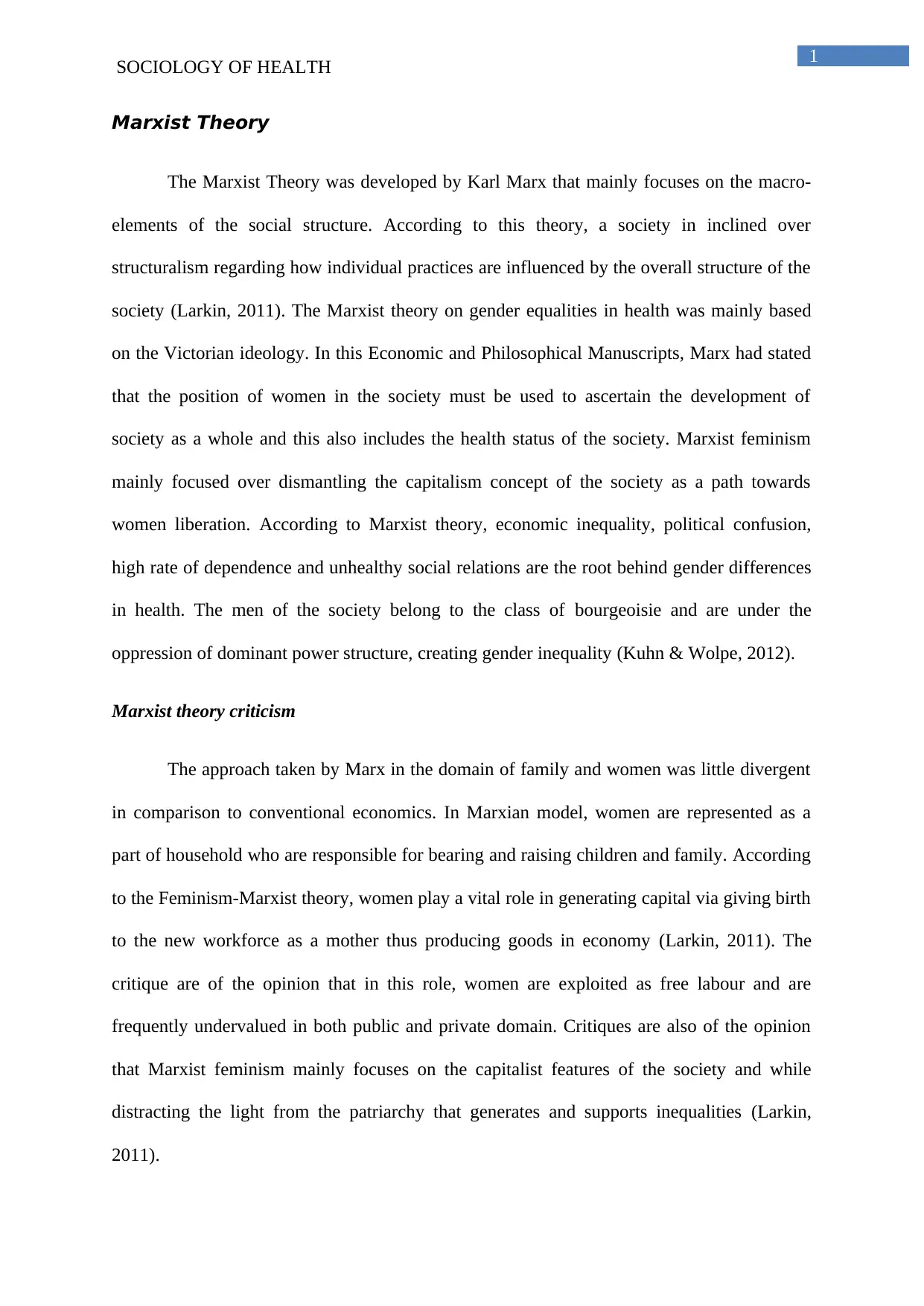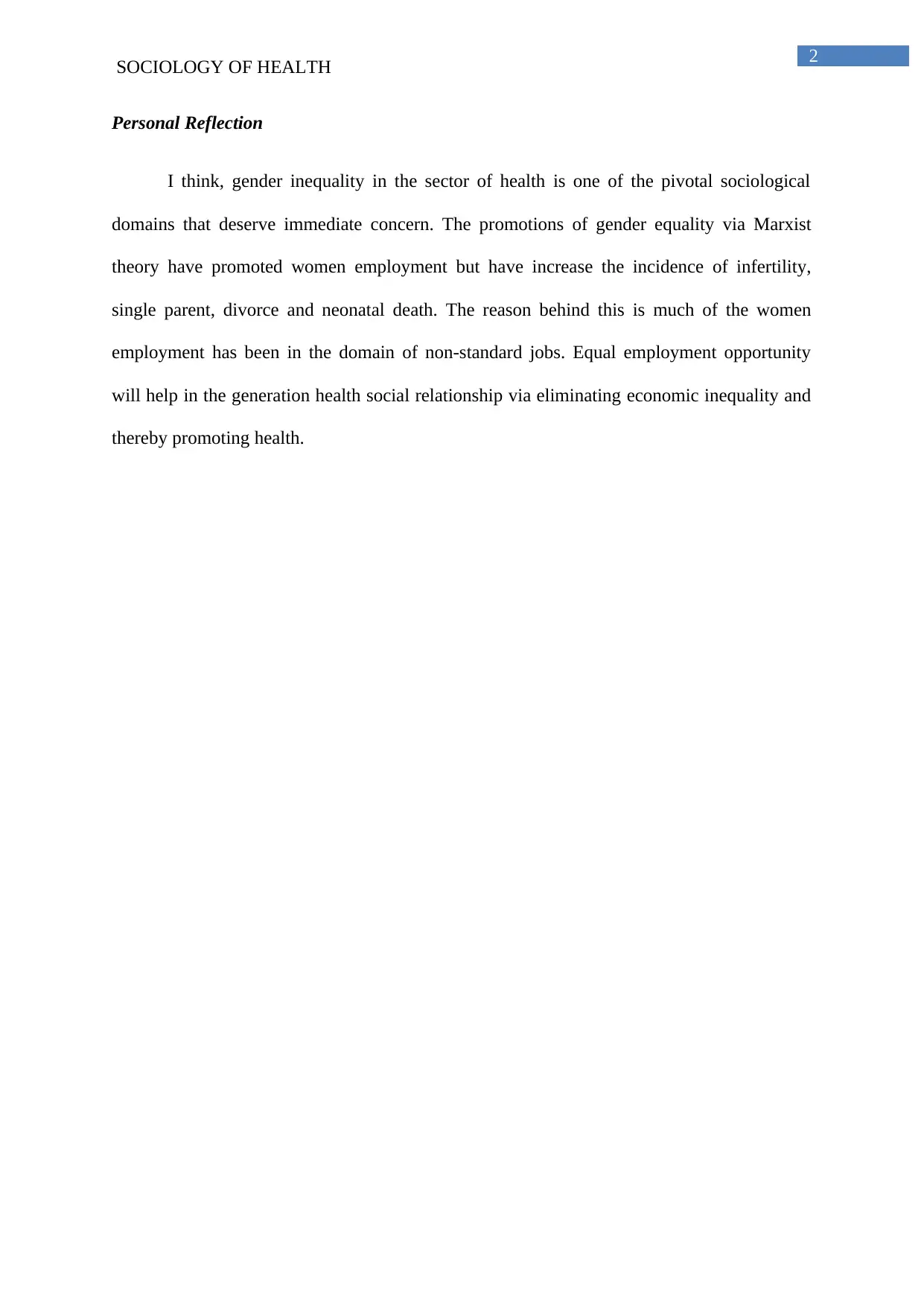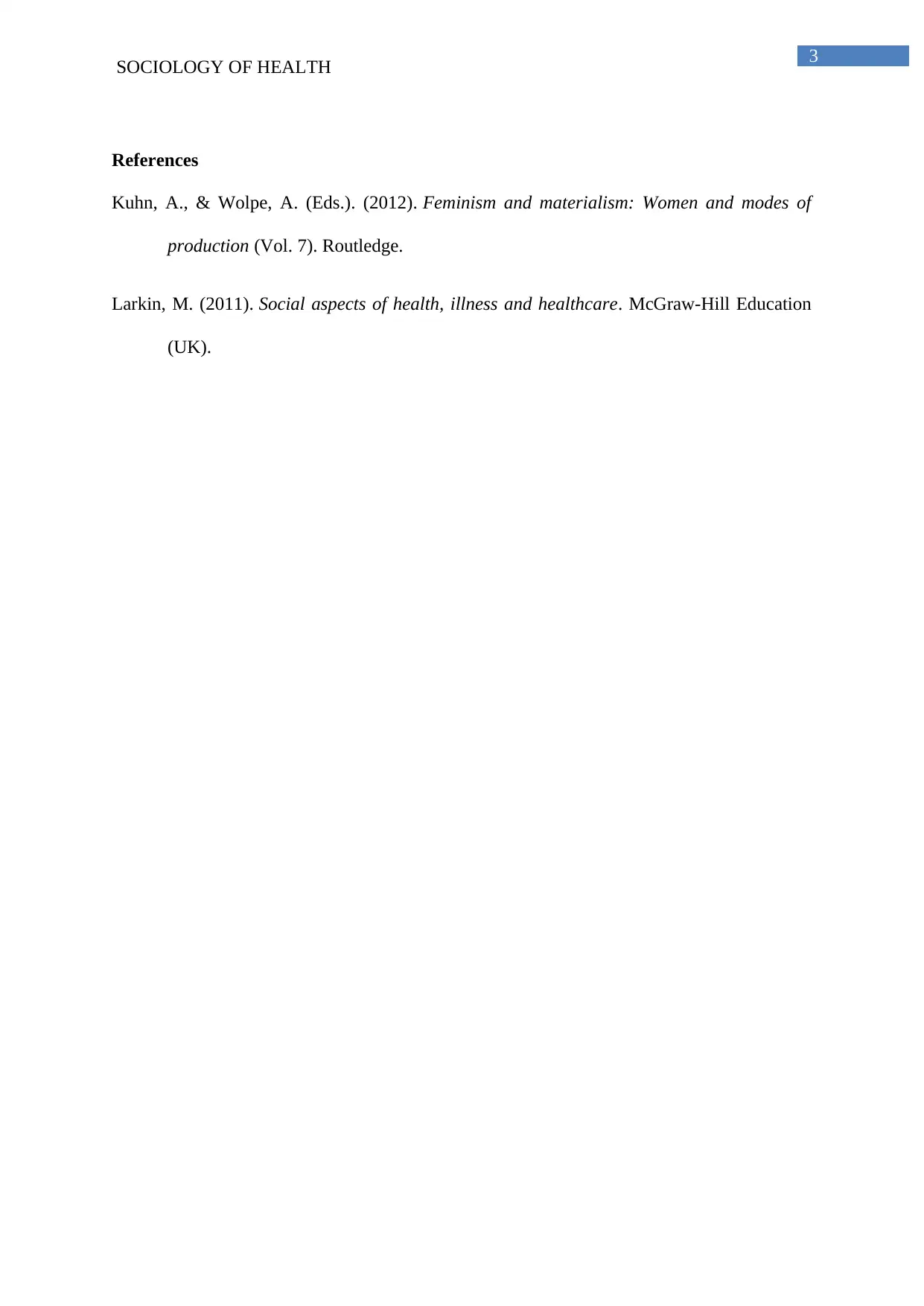Exploring Gender Differences in Health Using Marxist Theory
VerifiedAdded on 2023/06/15
|4
|513
|220
Essay
AI Summary
This essay delves into the Marxist theory and its application to understanding gender differences in health. It examines how Marxist feminism views the dismantling of capitalism as a path towards women's liberation and highlights the theory's focus on economic inequality, political confusion, dependence, and unhealthy social relations as root causes of gender disparities in health. The essay also addresses criticisms of the Marxist approach, particularly concerning the representation of women's roles and the prioritization of capitalist features over patriarchal structures. A personal reflection is included, questioning the impact of gender equality promotions on various social issues. The essay concludes with a list of references, providing a comprehensive overview of the topic and related research.
1 out of 4











![[object Object]](/_next/static/media/star-bottom.7253800d.svg)